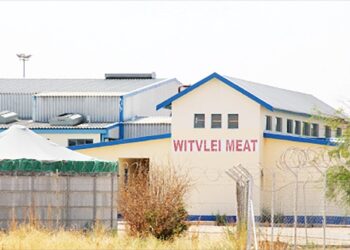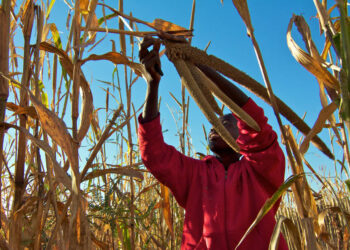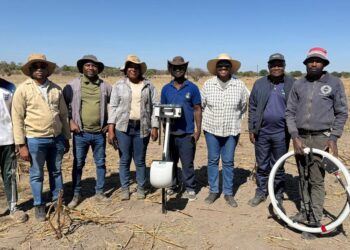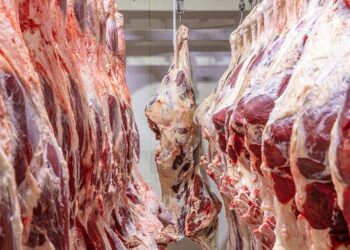
My opinion comes at a critical hour because of the eminent amendment of the Marine Resource Act, 2000 (Act NO. 27 of 2000) and as such strategic because of the potential impact it will have on the local economy.
Artisanal fisheries (small-scale fishing) can help create employment and economic activities in both coastal and in riverine communities especially where job options remain limited.
In the words of Linscheid (2001) “fishers are fishers no matter where they liveâ€.
Artisanal Fisheries is defined “as small-scale traditional fisheries that may be carried out for subsistence and commercial purpose in which the owner is directly involved in the day-to-day running of the enterprise and relatively small amount of capital is used.â€
Namibia with a 34% unemployment rate (2018), critical thinking and application around employment creation needs to be explored to change the status quo. We cannot afford to sit idle and leave everything else to the government leadership to find ways and means for our entire livelihood. As such, we need to take a leading role to find these means, which is the rationale behind writing this article.Â
It is common course that small-scale fisheries are dynamic in nature. They can be conducted on a full-time, part-time or seasonally depending on the type of fisheries around the area.
However, the idea is to have this done on a full-time basis to supply fish and fish products to the local and domestic markets for subsistence consumption.Â
Once implemented, this sector will create an opportunity for ancillary activities for further employment such as boat-building, net-making, engine repair and maintenance and transportation. These opportunities can only be explored once we make provisions for “Artisanal fisheries†in the Marine Resource Act, 2000 (Act No. 27 of 2000). Â
At present, the Act does not make specific provision for Artisanal Fishing. It simply highlights recreational and commercial harvesting and nothing artisanal. This is an oversight that needs to be addressed.
While Namibia fishery management is praised as one of the best in the world, we should remain focused on ensuring the status quo is maintained even when artisanal fisheries is introduced.
This can be done by introducing proper control processes like it is done in other countries such as Spain, France, Netherlands, South Africa, Angola and Nigeria to name but a few.
Environmentalists reading this article may argue that if we are to implement artisanal fishing, this may lead to overfishing. I submit that this is not an accurate viewpoint as inshore fishing can happen within the 200m depth line in the Namibia waters. At the moment, there is minimal activity inshore other than Rock Lobster fishing and Diamond mining. Literally, due to this inactivity inshore, Namibia is disadvantaging itself compared to countries bordering it such South Africa and Angola that have made provision for such fishing practices.
Put plainly, unfortunately fish does not have a GPS system within them to determine that they are in the wrong country leaving them vulnerable to be caught by whoever has the means.
The fact is, artisanal fisheries is not a new phenomenon. The participants in this sector, will make use of small boats (ski boats) and handline gear or any other that may be relevant.
Other requirements and discretionary provisions will be designed congruent to our fishery to ensure the protection and management of the protected species such the Rock Lobster, Sharks and etc.
The focused fishery remains by-catches.Â
In addition, what is being addressed in this article is the potential economic interest of fishermen and surrounding communities should such fishing practice be implemented and form part of our laws.
For this sector to be a success, support from relevant role players other than policy makers is needed. Notably, micro-lending institutions have an important role to play. Their main function is to provide financial assistance to the players (small-scale fishermen) to enable the purchasing of fishing equipment and other facilities.
Ataguba & Olowosegun (2010), suggest the micro-lending institutions to:
- Take the initiative of learning about small-scale fisheries sector – This is true particularly in our country because of the notion that if it is not done in South Africa, then it cannot be done in Namibia.
- Develop appropriate financial services, including the adaptation of existing products and services to the fisheries sector.
- Explore ways to contribute to reduce poverty and fishery management in fishery dependent areas and develop services to provide these contributions.
- Identify other interventions and/or services that are needed to support and sustain financial service delivery to fishers.
There is no universal methodology in the implementation processes to ensure the success of artisanal fishing. However, a formalized approach which includes: a) a quota provision for artisanal fishing, b) formation of cooperatives by individuals, c) allocation of quota with an economic value per cooperative and d) continuous monitoring and evaluation process, can assist to see the implementation through.
In conclusion, the multiplier effect around small-scale fishing is enormous and may reduce the dependence on government in one part. The Ministry of Fisheries and Marine Resources are implored to explore the idea of Artisanal Fisheries and implement accordingly.
I so submit.Â
*Inocencio Verde is a cutting-edge executive and an operations strategist with keen interest in community uplifting projects.The views expressed are personal and do not represent that of my employer.











